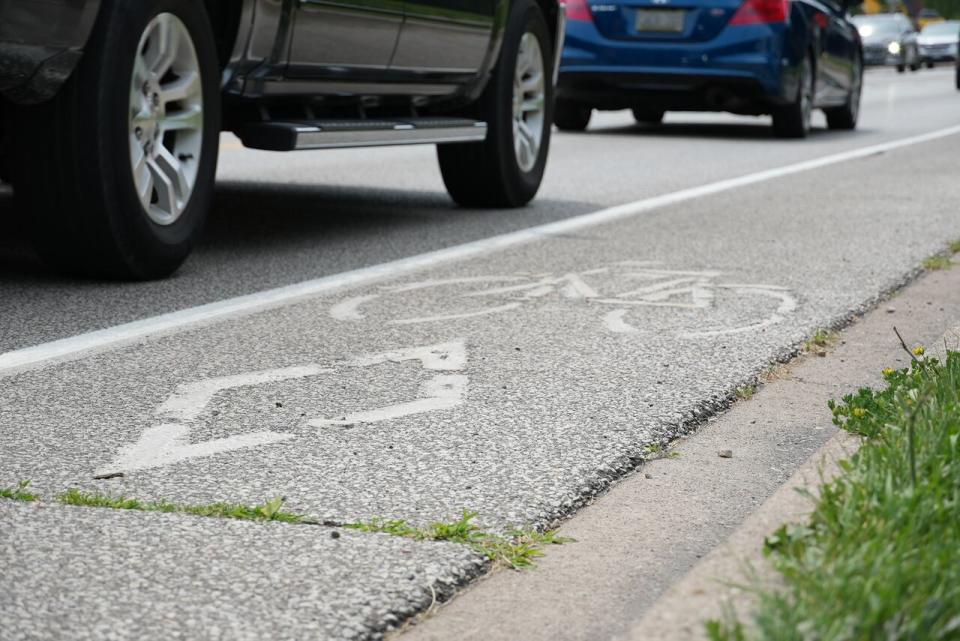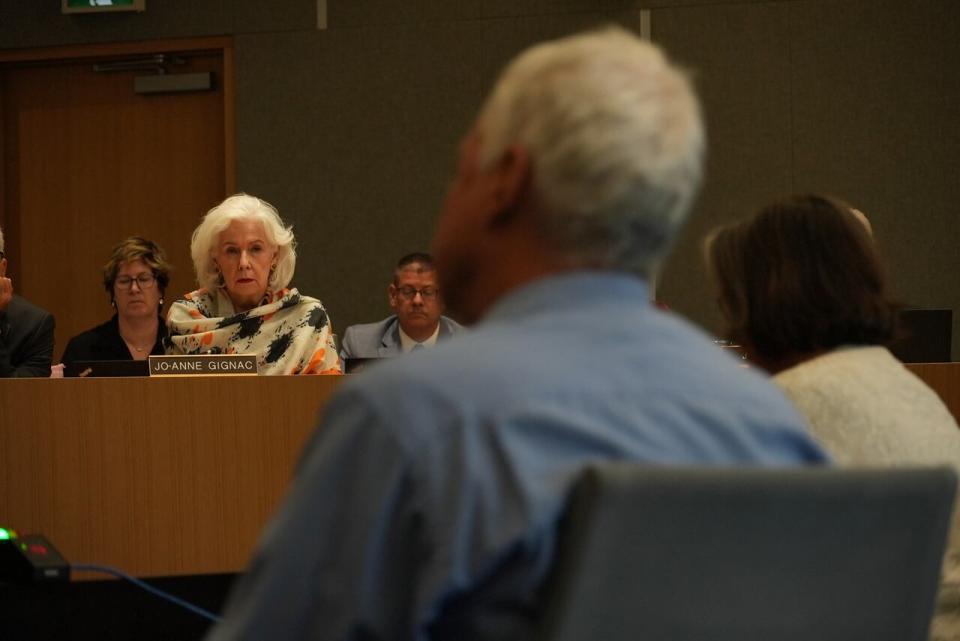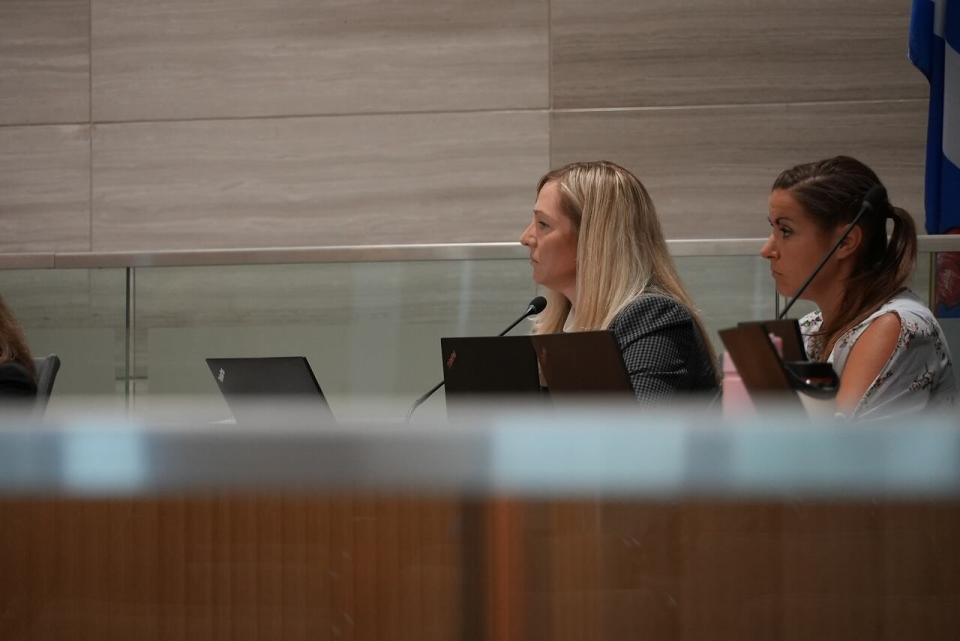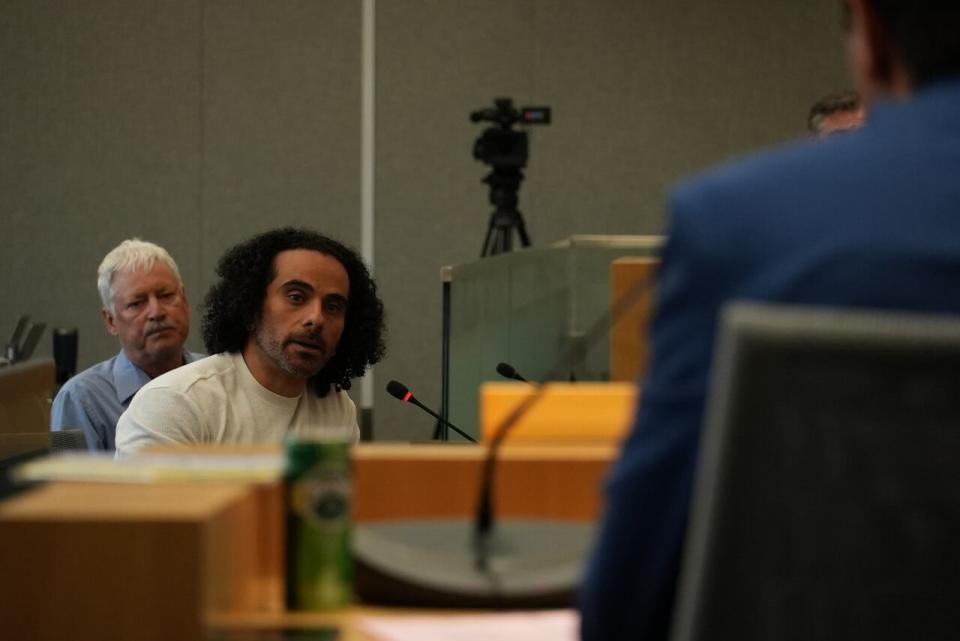City exploring bike path extension on Riverside Drive instead of narrowing Wyandotte Street
City of Windsor staff will explore extending a bike path along Riverside Drive instead of narrowing Wyandotte Street East between Walker Road and Lauzon Road.
Council's decision at Monday's meeting ends a decades-long battle over protected bike lanes on the street as part of a road diet.
It also means a connected east-to-west bike route on the north end of the city may not be completed until 2027.
Designs for the road diet proposed replacing one lane of traffic in each direction with on-street parking and protected bike lanes along stretches of Wyandotte Street in the east end of the city.
That was the preferred option that came back after public consultations in 2022, while two groups representing area businesses were split on the issue.

A handful of delegates spoke in favour of the road diet on Monday but city staff warned council that it would increase congestion of vehicle traffic on Wyandotte Street and did not recommend the project.
Staff said the upcoming Riverside Vista project will require intermittent closures of Riverside Drive over the next decade as the city looks to improve roads and sewers and that it would likely push traffic onto Wyandotte Street.
Coun. Jo-Anne Gignac put forward a plan to have the city explore extending a bike path along Riverside Drive during the next phase of the vista project and explore reducing speeds on Wyandotte.
"I think it's really important to get this connection... in as soon as possible. To make a safe connection east to west," said Gignac.
Council supported the plan, which asks staff to prepare a report on options to extend a planned bike lane on Riverside Drive from St. Rose Avenue to Ford Boulevard further west to Strabane Avenue.
"We can get going on a design so that we're ready for that 2026, 2027 installation," said Shawna Boakes, the city's executive director of operations.
Council also supported calling on the province to increase penalties for speeding and asking staff to see if the sidewalk on the underpass at Drouillard Road can be used by bikes.
Traffic calming measures for Wyandotte
City staff told council that there are projects in the works that will aim to calm traffic along Wyandotte Street.
That includes speed feedback signs that mark and display speeds of vehicles using the street.
Boakes said that its difficult to calm traffic along the area because it's a road used to move a large amount of vehicles through the city.

She believes concepts will be pitched to council this summer and ready to implement in late fall or early spring.
Council discussed decreasing the speed limit along Wyandotte Street but was told that could take time as the city considers data.
Coun. Gary Kaschak pitched immediately reducing the speed limit to 40 km/h.
"We'd like to look at it holistically and say 'these are the worst areas, let's focus on these," Boakes told council.
Boakes said that will likely focus on residential roads first.
Coun. Fabio Costante questioned why council would reduce a speed limit after adopting a Vision Zero strategy that acknowledges drivers will go as fast as they feel safe to drive regardless of speed limits.
Council urged to move forward with road diet
Diana Furlong, who cycles throughout the city, was among those who spoke at the council meeting on Monday.
"I do not understand how we can not do this, how could we continue to say cyclists need to go elsewhere," she said.
She wanted to see the Wyandotte Street road diet move forward along with bike lanes on Riverside Drive East.
"It shouldn't be an either-or situation," she said.

Wayne Charbomneau told council about a moment last month when he said he was driving in a painted bike lane on a city road late at night.
He said that a driver came up behind him on an empty road, blared their horn at him and came within inches of his handlebars.
Charbomneau wanted to see protected bike lanes on Wyandotte Street.
"I don't expect a drastic change tomorrow but in 10 years would be nice," he said, adding that often rides on sidewalks and in the middle of traffic lanes to keep himself safe.
The co-ordinator of the Olde Riverside Business Improvement Area's policy and advocacy committee urged council to move forward with the proposed road diet.
"We can foster an environment where businesses thrive and local residents can enjoy a higher quality of life," said Candyce Mollard.
She said it's likely a split decision among members who support or oppose the project.

Terry Yaldo, the owner of a convenience store in Pillette Village, told council his favourite form of transportation is his bike but had to drive to the meeting because of timing issues.
He spoke out against the road diet as a business owner and chair of the Pillette Village Business Improvement Area.
"We can not inconvenience over 20,000 vehicles a day to make way for a minimal amount of bike riders who will use the bike lanes."
Yaldo was concerned about spillover of traffic onto side streets.


